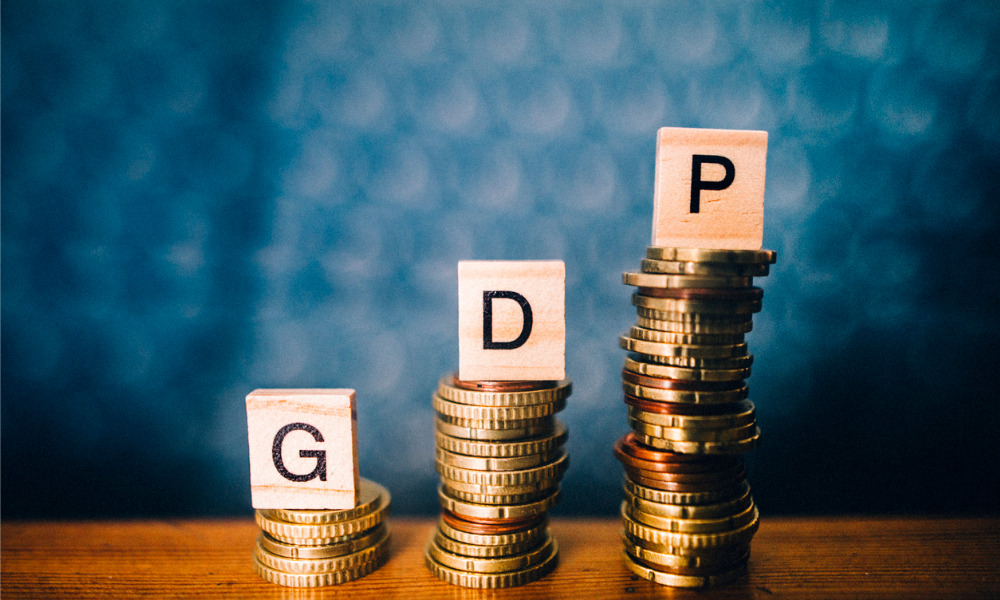Full impact of higher interest rates to come

The Canadian economy showed signs of slowing towards the end of 2022 as higher interest rates curbed spending.
This slowdown was indicated by Statistics Canada’s preliminary real GDP, which pegged fourth quarter economic growth at an annualized rate of 1.6%, versus 2.9% in the third quarter.
While the economy remained on the path of positive growth in the fourth quarter, RBC assistant chief economist Nathan Janzen said this would likely slow as the full impact of recent interest rate hikes start to become more apparent.
“The key when you look forward is really that a lot of the impact of interest rate increases from the Bank of Canada to date haven’t yet flowed through fully to household purchasing power,” he told The Canadian Press.
Data from Statistics Canada also revealed that growth stalled in December after a slight 0.1% hike in November.
The November spike was primarily driven by the public sector, along with finance and insurance. Transportation and warehousing also contributed to the growth, with COVID-19 travel restrictions having been lifted.
Meanwhile, the growth from these sectors was offset by contraction in construction, retail, accommodation and food services.
“You’re starting to see more signs of maybe cracks in the consumer spending backdrop,” added Janzen, referring to the declines in the sectors of food services and retail trade and accommodation.
Evaluating Statistics Canada’s GDP estimates, Scotiabank said the economy is currently in “a deep state of excess demand” that may be “tentatively shifting toward opening up some slack.”
According to Scotiabank, there needs to be a prolonged period of economic growth undershooting potential GDP growth for Canada’s economy to open up slack and exert downward pressure on inflation.
Whether this will happen in 2023 is unclear as neither upside nor downside momentum has been baked into the first quarter, wrote Scotiabank VP & head of capital markets economics Derek Holt in the report.
“For now, we’ve only taken a small baby step on the path toward evaluating the economy’s performance with the central bank on pause as it does so,” he concluded.
The Bank of Canada implemented its eight consecutive rate hike last week and said it would “be considering whether the policy interest rate needs to rise further.”
Amid this conditional pause, most economists are still anticipating a modest recession in 2023 as the full economic impact of interest rate hikes aren’t usually felt until 12 to 18 months later.
“We still do expect GDP growth to continue to slow and get into negative territory over the first half of this year,” said Jenzen.



